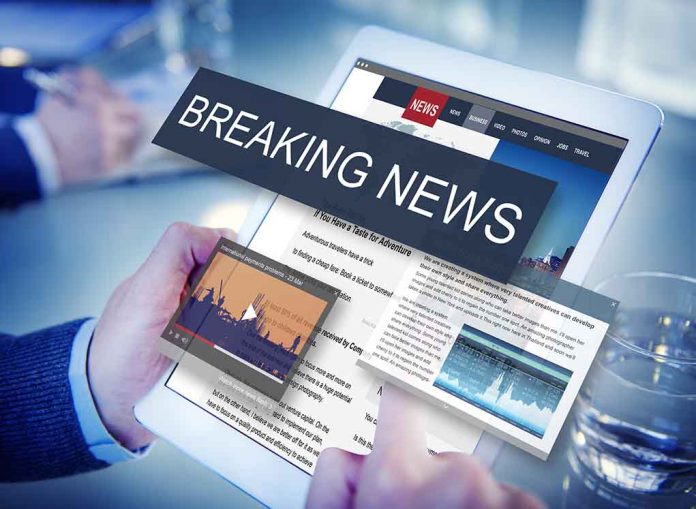
Faced with mounting accusations of left-wing bias, Wikipedia’s parent organization has finally been forced to address its credibility crisis as co-founder Jimmy Wales leads a new initiative aimed at restoring neutrality to the world’s largest online encyclopedia.
Key Takeaways
- The Wikimedia Foundation launched a neutrality initiative in March 2025, chaired by Wikipedia co-founder Jimmy Wales, to address longstanding concerns of left-wing bias
- The working group will analyze neutrality policies across different-language Wikipedias, focusing on controversial issues including antisemitism, COVID-19, and geopolitical conflicts
- Initial recommendations are expected at the Foundation’s June board meeting, with additional findings to be presented at the August Wikimania conference
- Critics remain skeptical about the initiative’s ability to overcome entrenched ideological influences within Wikipedia’s editorial processes
- The effort comes after increased scrutiny regarding anti-Israel editing and accusations of antisemitism that prompted intervention from Acting U.S. Attorney Ed Martin
Long Overdue Neutrality Initiative
The Wikimedia Foundation, the organization behind Wikipedia, has established a working group focused on neutrality policy, with Wikipedia co-founder Jimmy Wales appointed as chair. This March 2025 development, announced in a blog post titled “Strengthening Wikipedia’s neutral point of view,” aims to examine and standardize neutrality policies across Wikipedia’s various language platforms. The initiative represents a significant acknowledgment of the criticism that has long plagued the online encyclopedia regarding its perceived political slant and editorial biases.
“The Wikimedia Foundation, owners of Wikipedia, formed a working group focused on neutrality policy at the end of March with site co-founder Jimmy Wales as chair,” stated the Wikimedia Foundation in their announcement, carefully avoiding explicit mention of the leftist bias that has motivated this initiative.
Addressing Controversial Content
The working group will focus on four key workstreams: analyzing neutrality policies across Wikipedia’s various language versions, examining coverage of controversial topics, gathering suggestions on enforcement mechanisms, and incorporating reflections from Wales himself. Particularly problematic areas include coverage of antisemitism, COVID-19-related topics, women’s issues, and the representation of non-Western cultural perspectives. The initiative comes at a critical time when trust in online information sources continues to decline globally.
“What does the world need from Wikimedia now?” asks the Wikimedia Foundation in their announcement, acknowledging that “best served not by advancing or detracting from particular points of view on any given subject, but by trying to present a fair, neutral description of the facts – including that various interpretations and points of view exist…This policy exists on all languages of projects that have adopted it, but the details of the policy vary significantly between projects and between different languages in those projects,” stated the Wikimedia Foundation.
Despite these aspirations, serious questions remain about Wikipedia’s ability to reform itself. The site’s contributors include individuals with extreme political views, including one editor who characterized conservatives as “the quasi-fascist movement that has taken over the Republican Party and the government of the United States,” – hardly a neutral starting point for objective content creation.
Foundation’s Left-Wing Track Record
The Wikimedia Foundation itself has a documented history of left-wing activism, including support for Black Lives Matter and various feminist initiatives. This institutional bias has trickled down to the content level, where conservative perspectives are often marginalized or misrepresented. Recent scrutiny has focused particularly on anti-Israel editing and allegations of antisemitism so severe that they prompted Acting U.S. Attorney Ed Martin to issue a formal letter of concern to the organization.
“While NPOV is an ultimate goal in writing an article, it is difficult to achieve immediately as a single writer. It is thus sometimes regarded as an iterative process (as is wiki writing in general), by which opposing viewpoints compromise on language and presentation to produce a neutral description acceptable to all, according to consensus decision-making,” stated Wikipedians.
This “consensus” approach has proven problematic when the majority of active editors lean strongly in one political direction. Former Wikipedia editor T.D. Adler, who now writes under an alias after being banned for reporting on conflict of interest editing, has documented numerous cases where this consensus model has resulted in biased content that favors progressive perspectives while sidelining conservative viewpoints.
Challenges to Implementing True Neutrality
The working group faces significant challenges in implementing meaningful reform. Wikipedia’s current Neutral Point of View (NPOV) policy claims to present all views fairly, but in practice, the determination of what constitutes a “reliable source” often excludes conservative media outlets while accepting progressive publications. This fundamental gatekeeping mechanism limits the diversity of perspectives that can be included in articles, regardless of how the neutrality policy is worded.
While the initiative represents a positive step, many conservatives remain skeptical that the Wikimedia Foundation can overcome its inherent biases. Initial recommendations are expected at the Foundation’s June board meeting, with additional findings to be presented at the August Wikimania conference. The true test will be whether this initiative results in substantive changes to Wikipedia’s content or merely serves as a public relations exercise to deflect growing criticism of the platform’s left-wing slant in the era of President Trump’s administration.



